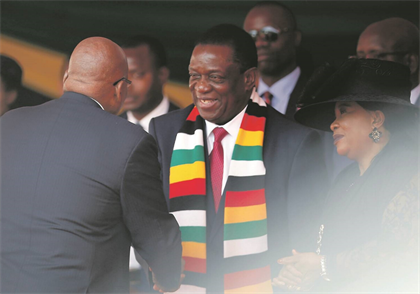A Zimbabwe spokesman warned people against flocking to church Sunday in the face of the Covid-19 pandemic, and even claimed that worshippers risked going to hell.
“A quick survey around town (in the capital Harare) shows a lot of religious activity above 100 people,” the Zimbabwe government spokesman Nick Mangwana said on Twitter.
“Let’s be responsible. All of us will die. And then go to hell,” he said.
The Zimbabwe government has banned gatherings of more than 100 people to ward off the spread of the new coronavirus and even declared state of national disaster even though it had no confirmed cases.
The Sub-Saharan African country, whose healthcare system has been eroded by two decades of economic decline, has so far recorded two cases of Covid-19.
Harare resident Joyce Ndlovu said her church had staggered masses so that none would exceed 100 faithful.
“Not going to church on Sunday is not an option,” she said. “So we have decided to not all go at the same time.”
READ | Zimbabwe president defies own travel ban to attend Namibia swearing-in
Meanwhile around 40 cars were seen in the carpark outside a Methodist school frequented by President Emmerson Mnangagwa, an AFP correspondent said.
Mnangagwa last Tuesday declared the new coronavirus pandemic a “national disaster” as he banned gatherings of more than 100 people.
But the next day he held a political rally in the east of the southern African country attended by several hundred people.
Zimbabwe’s President Emmerson Mnangagwa welcoming South Africa’s former President Jacob Zuma in Harare. (Siphiwe Sibeko, Reuters)
Also, despite ordering his ministers not to travel abroad, a ban he said applied to himself, the president travelled to Windhoek for the inauguration of his Namibian counterpart Hage Geingob.
Angolan and Botswanan presidents Joao Lourenco and Mokgweetsi Masisi were also present at the event attended by several hundred people.
Botswanan civil servants have been ordered not to leave the country, while in Angola, Lourenco decreed the closure of land borders and banned commercial flights as well as gatherings of more than 50 people.


